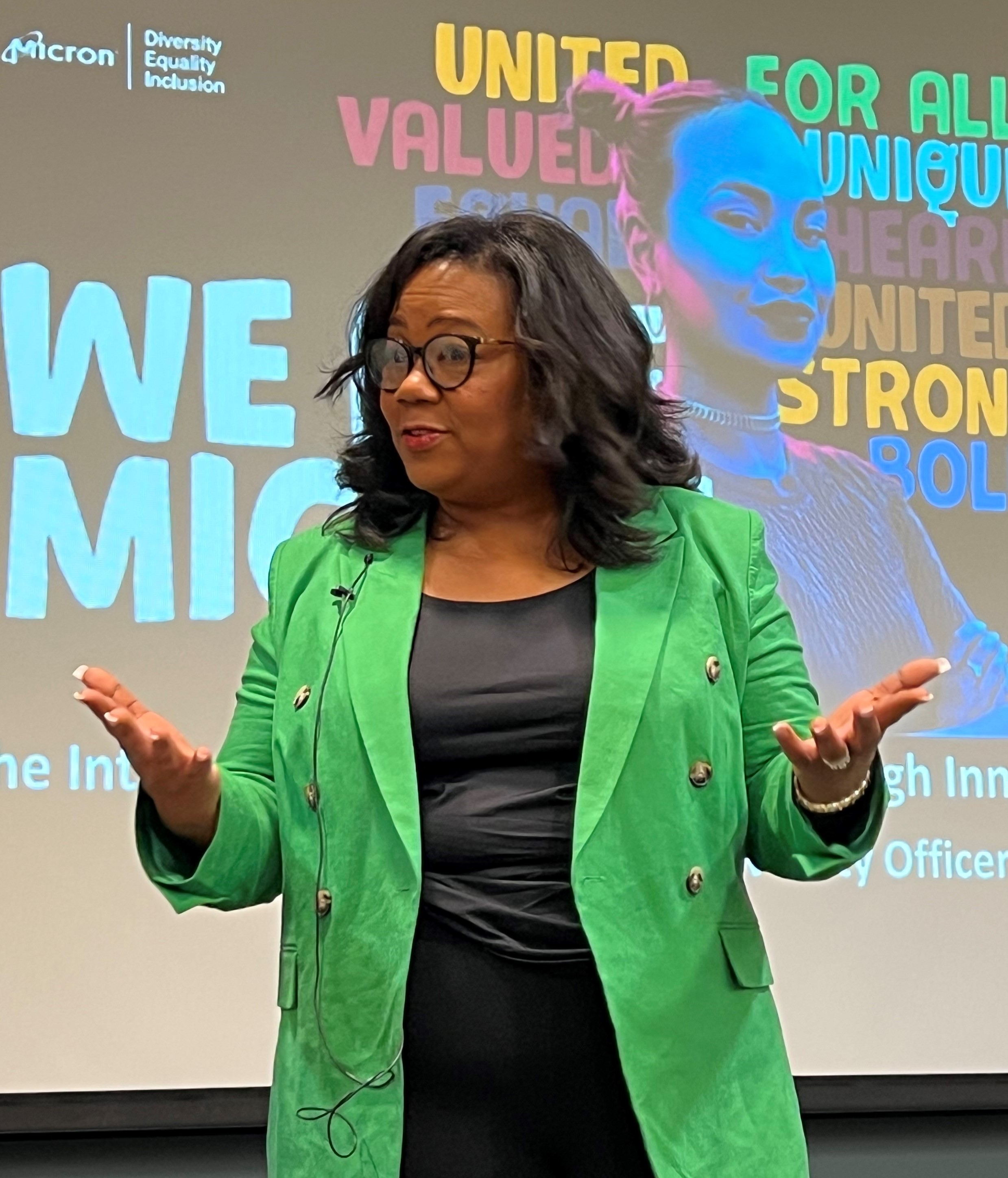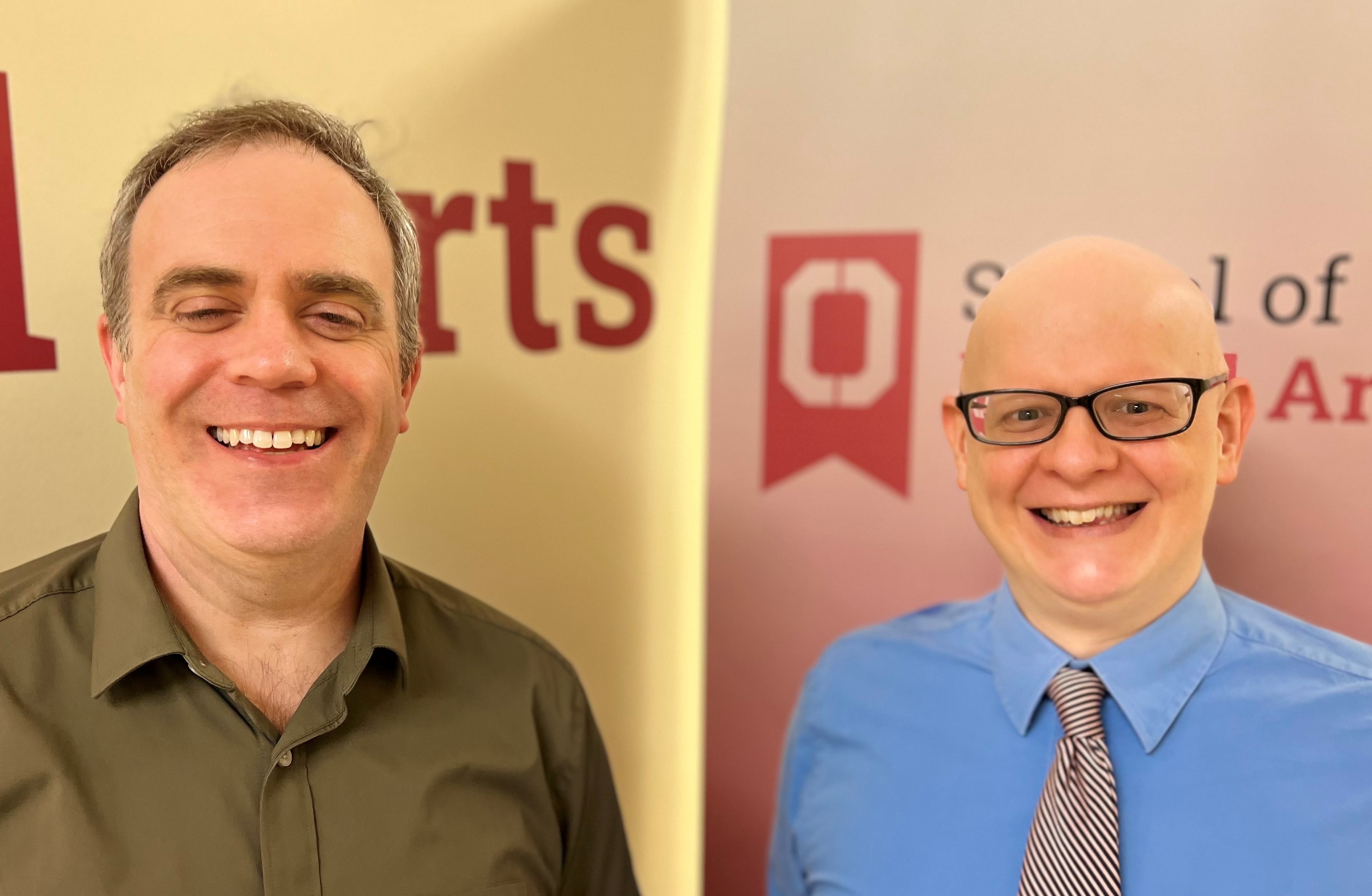
The academic highlight of Kaia Gaskins first semester at Onondaga Community College was a new class, Introduction to the Liberal Arts (LBL 101). She recalls discussions centering around topics like "what is happiness" or "what is beauty." Those conversations about enduring questions and the realization that so many things were open to others interpretation led to a deep understanding and acceptance of diverse viewpoints. "I loved it. It was my favorite class. Everyone was respectful and it was a safe space where you could express your opinion about anything we talked about. It opened my eyes to see things different about the world."
Gaskins professor for LBL 101, whom she referred to as her "favorite," was Philosophy Professor Patrick Kenny. He and History Professor Shawn Wiemann are Co-Principal Investigators in the Cornerstone: Learning for Living project, an initiative co-funded by the National Endowment for the Humanities and the Teagle Foundation. Their project is titled “Enduring Questions and Liberal Arts Pathways at OCC.” It led to LBL 101, the new course which Gaskins found to be so valuable. "We created a new content-rich class for incoming students, and took already existing general education courses and inserted enduring questions and texts into them," said Professor Kenny. "What we did generated a lot of promise both here on our campus and across SUNY," added Professor Wiemann. "Our approach was novel and promising. We wanted to strengthen the core of Liberal Arts degrees and pair it with those areas where their could be some alignment in health and the sciences and tech."
Their ongoing commitment to the liberal arts and enduring questions included a series of related speakers on campus. During the spring semester, Fran Dillard, Micron's Vice President and Chief Diversity Inclusion Officer, spoke before a packed house in Mawhinney Hall. She addressed the enduring questions, "What rights and liberties are inherent to being human? What responsibilities do humans have" through the lens of Micron's vision? What does "for all" mean in the semiconductor industry which is facing a shortage of skilled workers? Does a corporation have a responsibility to ensure access to good-paying STEM careers to communities who have historically been marginalized from those opportunities? What about the communities where a corporation works and lives? Does "for all" apply to creating better outcomes for all in the community, as well as creating a more inclusive workplace culture?
Also coming to campus this semester is Dr. Deirdre Nielen from SUNY Upstate Medical University’s Center for Bioethics and Humanities. She’s expected to discuss how important life questions can be incorporated into the practice of healthcare. Several of the enduring questions have been incorporated into OCC Physical Therapist Assistant Professor Tammy Lytle's Seminar (PTA 204) course. "The class has second year students who are in their final semester and have clinical experience," she said. "We talk about basic patient rights, death and dying, and incorporate a text from Tuesday's With Morrie who receives physical therapy while suffering from ALS. We also talk about research and ethical considerations, cultural diversity, and basic human rights with compassion. All of those fit perfectly into our class and match our core values set forth by our professional organization.”
Any of the enduring questions which were relatable were incorporated. They were used during discussion and reflection assignments. “We wanted to make sure students felt comfortable speaking about these topics, understand they don’t have all of the same opinions, and be okay with accepting different perspectives," said Kristen Lounsbery, Physical Therapist Assistant Program Coordinator.
Professors Kristen Brumfield and Michael Podolny met with professors in non-humanities disciplines and helped them incorporate some enduring questions into their coursework. "We have common texts in all of the sections. Once it becomes apparent that education can be something you interrogate and think about, not just what skills am I learning in this class but what am I doing here, the liberal arts framework we use through this grant becomes useful," said Professor Podolny.
"I like to think of it as planting seeds in their minds. We are engaging in conversations about issues people have thought about all through time and they are relevant," said Professor Brumfield. "With the focus on vocational training, we want students to go into the workforce meaningfully and thoughtfully and occupy those professional spaces with an awareness of their responsibilities to other humans, a sense of justice and truth, to have an idea what is beautiful and what is friendship and what does it mean to be loyal. Those questions are equally important to their success as a human being within their professional success. It's important to merge those two together."
One of the texts students are required to read is Plato's Allegory of the Cave. It's one of the oldest texts of all time, and Professor Brumfield says it always reminds students of something in their every day lives. "In Allegory of the Cave, prisoners in the cave are shown shadows on a wall by a fire. They don't know who's making the shadows and they believe it to be a reality. The students always relate it to today's social media. They believe it to be a reality but it's a false reality. They accept it as reality until they become enlightened. They gain wisdom and then look at it differently."
All of the work done during the first two years of the grant project will culminate Friday, May 5 with a day-long event titled "SUNY Community of Practice: Enduring Questions." "We're going to discuss what we've done and get input from everyone across SUNY. We have 10 schools and 22 faculty committed to attend along with a representative from Teagle. This seems to have real growth potential to benefit our students locally and across the SUNY System," said Professor Kenny.




